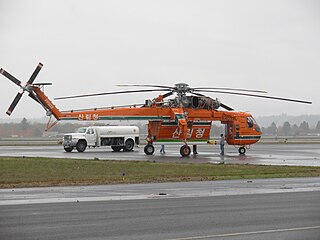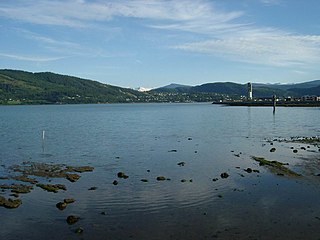
The Barents Region is a name given, by advocates of establishing international cooperation after the fall of the Soviet Union, to the land along the coast of the Barents Sea, from Nordland in Norway to the Kola Peninsula in Russia and beyond all the way to the Ural Mountains and Novaya Zemlya, and south to the Gulf of Bothnia of the Baltic Sea and the great lakes Ladoga and Onega. Among the projects is the Barents Road from Bodø in Norway through Haparanda in Sweden and Finland to Murmansk in Russia. One concrete sign of the increased communication within the region is the establishment in 2006 of an IKEA store in Haparanda, targeting customers 500 km away in Murmansk and northern Norway. The region has six million inhabitants on 1.75 million km2; three quarters of both belong to Russia.

The University of Akureyri was founded on September 5, 1987, in the city of Akureyri in the northeastern part of Iceland. It has grown since then, establishing a school of health sciences, humanities and social science, and a school of business and science. Over 2000 students attended the university in the autumn semester of 2014, around half of them through distance education, making the university the largest provider of distance education in the country. The University of Akureyri coordinates with other Icelandic Universities to operate the University Centre of the Westfjords located in Ísafjörður, which operates two master's degrees, one in Coastal and Marine Management and the other in Marine Innovation. Additionally, The University of Akureyri coordinates with other Nordic Universities for the West Nordic Studies and Polar Law Masters programs.
The Norwegian University of Life Sciences is a public university located in Ås, Norway. It is located at Ås in Akershus, near Oslo, and at Adamstuen in Oslo and has around 5,000 students.

The government of Singapore consists of several departments, known as ministries and statutory boards in Singapore. Ministries are led by a member of the cabinet and deal with state matters that require direct political oversight. The member of the cabinet heading the ministry is known as the minister, who is supported by a junior minister known as the minister of state in Singapore. The administrative management of the ministry is led by a senior civil servant known as a permanent secretary.
The Deutsche Gesellschaft für Internationale Zusammenarbeit (GIZ) GmbH or GIZ in short is a German development agency headquartered in Bonn and Eschborn that provides services in the field of international development cooperation. GIZ mainly implements technical cooperation projects of the Federal Ministry for Economic Cooperation and Development (BMZ), its main commissioning party, although it also works with the private sector and other national and supranational government organizations on a public benefit basis. In its activities GIZ seeks to follow the paradigm of sustainable development, which aims at economic development through social inclusion and environmental protection. GIZ offers consulting and capacity building services in a wide range of areas, including management consulting, rural development, sustainable infrastructure, security and peace-building, social development, governance and democracy, environment and climate change, and economic development and employment.

The Korea Forest Service is charged with maintaining South Korea's forest lands. It is an independent agency specializing in forestry that is overseen by the Ministry for Food, Agriculture, Forestry and Fisheries. The current minister is Mr. Kim Jae-Hyun. The headquarters of the agency is located at the Daejeon Government Complex.

The Philippines' Department of Science and Technology, is the executive department of the Philippine Government responsible for the coordination of science and technology-related projects in the Philippines and to formulate policies and projects in the fields of science and technology in support of national development.
Interreg is a series of programmes to stimulate cooperation between regions in the European Union, funded by the European Regional Development Fund. The first Interreg started in 1989. Interreg IV covered the period 2007–2013. Interreg V (2014-2020) covers all 28 EU Member States, 3 participating EFTA countries, 6 accession countries and 18 neighbouring countries. It has a budget of EUR 10.1 billion, which represents 2.8% of the total of the European Cohesion Policy budget. Since the non EU countries don't pay EU membership fee, they contribute directly to Interreg, not through ERDF.
The Government agencies of Norway are state controlled organizations that act independently to carry out the policies of the Government of Norway. The Government Ministries are relatively small and merely policy-making organizations, allowed to control agencies by policy decisions but not by direct orders. A Minister is explicitly prohibited from interfering with the day-to-day operation in an agency or the outcome in individual cases. While no minister is allowed to give orders to agencies personally, they are subject to decisions made by the Government. Also, the Minister is normally the instance of appeals of agencies decisions.

Norwegian Institute for Agricultural and Environmental Research (Bioforsk) is a national Norwegian R&D institute specialising in the fields of agriculture and food production, environmental protection and natural resource management. Furthermore, Bioforsk focuses on research-based innovation, value creation and sustainable resource utilisation. Bioforsk aims to be a regionally, nationally and internationally competitive knowledge producer and service provider.
The Research Council of Norway is a Norwegian government agency responsible for awarding grants for research as well as promoting research and science. It also advises the Government in matters related to research, and is subordinate to the Norwegian Ministry of Education and Research. The council's total budget in 2009 amounted to NOK 6 165 million.

The EEA Grants and Norway Grants are the financial contributions of Norway, Iceland and Liechtenstein towards the reduction of economic and social disparities in the European Economic Area (EEA) and to strengthen bilateral relations with 16 EU and EEA Member States in Northern, Central and Southern Europe.

The Egyptian Ministry of Communications and Information Technology (MCIT) is the government body responsible for information and communications technology (ICT) issues in the Arab Republic of Egypt. Established in 1999, MCIT is responsible for the planning, implementation and operation of government ICT plans and strategies. MCIT is led by the Minister of Communications and Information Technology, who is nominated by the Prime Minister and is a member of the cabinet. The current ICT Minister is Amr Talaat who assumed the position on 14 June 2018. MCIT is headquartered in Smart Village Egypt, in 6th of October, Giza Governorate, in the Cairo metropolitan area.
Euvaldo Lodi Institute of Rio de Janeiro is the equivalent of the Brazilian Euvaldo Lodi Institute, created by the National Confederation of Industry along with the Industry Social Service (SESI) and the National Industrial Training Service in 1969. Except it only covers Rio de Janeiro state, instead of all the Brazilian territory.
The state agencies that form Thailand's public sector consist of several types of functioning bodies. While some agencies established by mandate of the constitution are independent, others are directly or indirectly answerable to the executive of the Royal Thai Government. The majority of these are government agencies, which employ the civil service as well as the military. Others include public organizations and state enterprises.
The Government agencies in Bangladesh are state controlled organizations that act independently to carry out the policies of the Government of Bangladesh. The Government Ministries are relatively small and merely policy-making organizations, allowed to control agencies by policy decisions. Some of the work of the government is carried out through state enterprises or limited companies.
Science and technology in Kazakhstan outlines government policies to develop science, technology and innovation in Kazakhstan.












